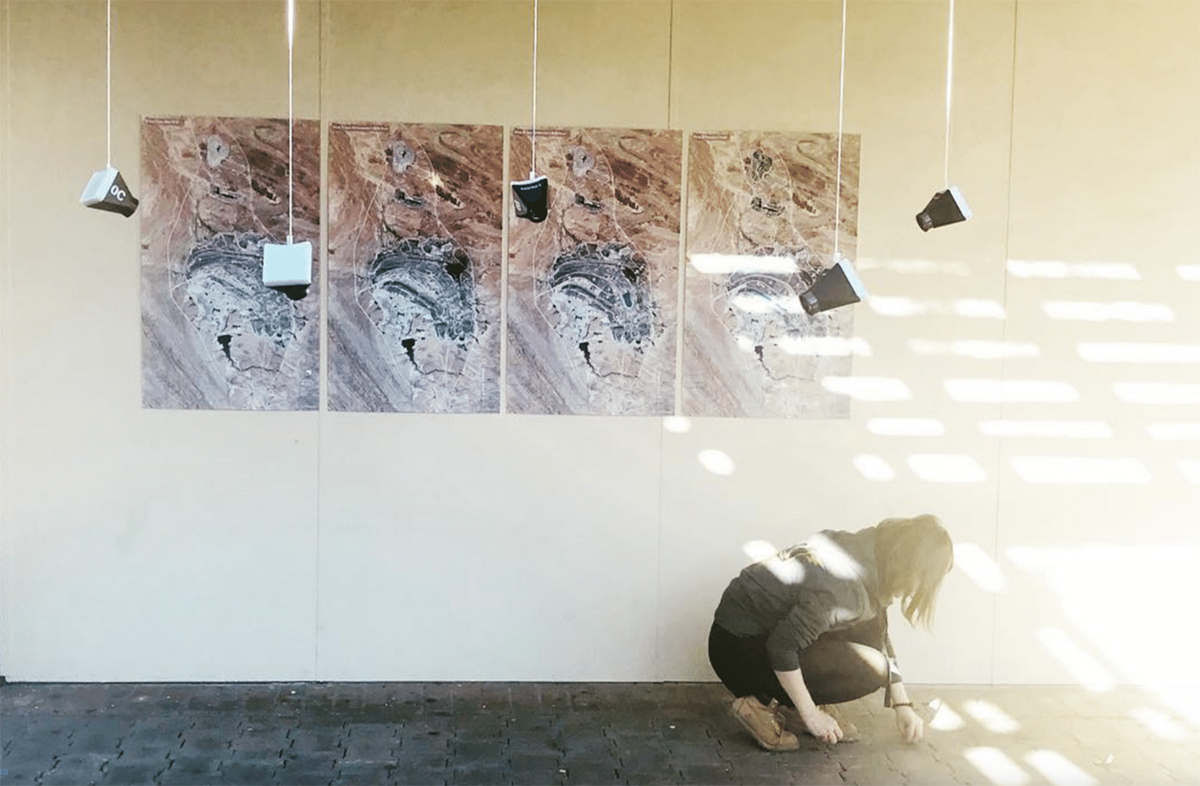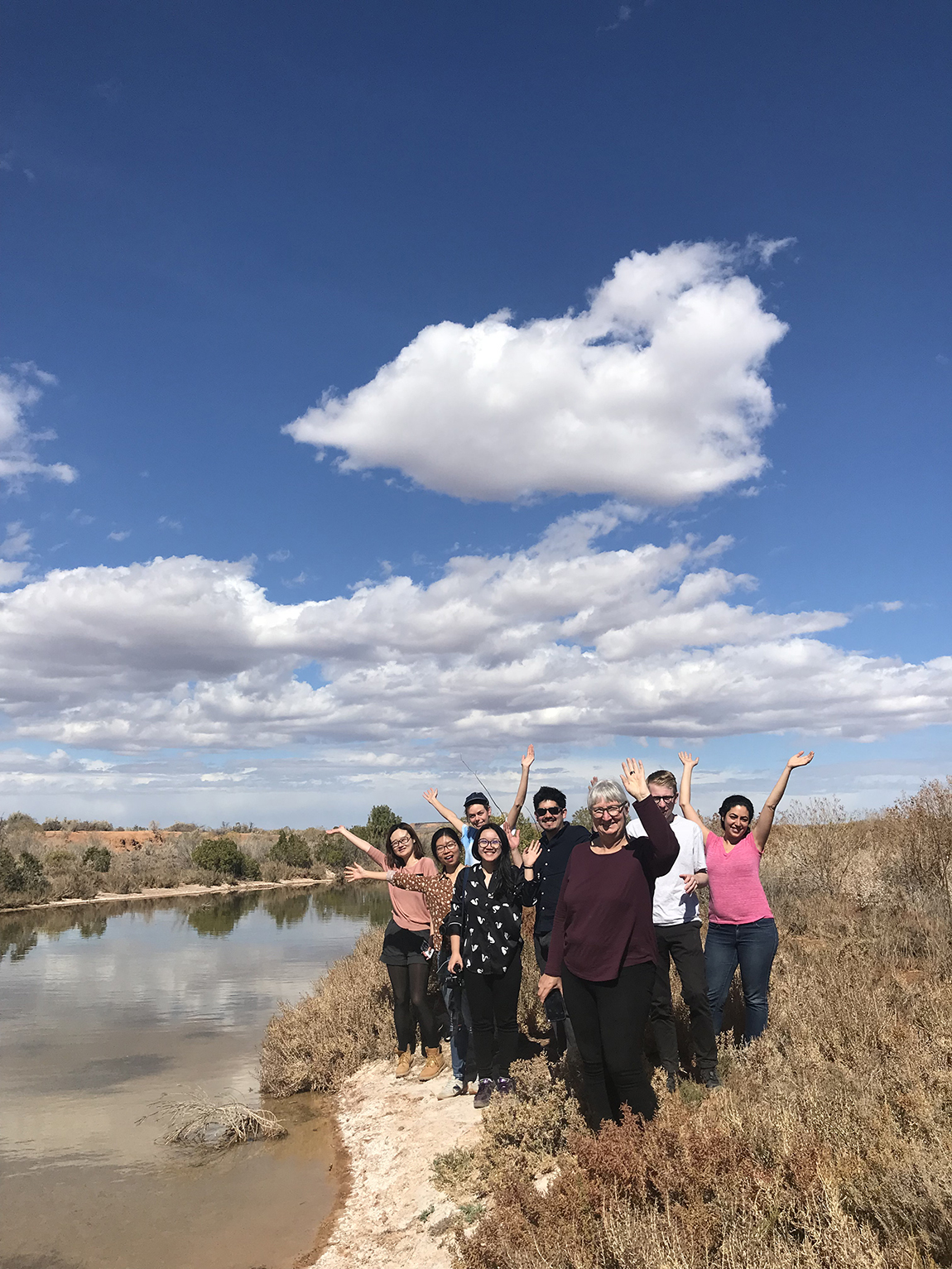12.09.18 - Daniels students join Aziza Chaouni in Australia to imagine the future of a decommissioned coal mine and its village in Leigh Creek
This summer, Associate Professor Aziza Chaouni led a research field trip with five Daniels Faculty graduate students to the Australian outback.
In conjunction with the Designing Ecological Tourism (DET) research platform, Chaouni and the students have been working with the South Australian Government and the University of Melbourne to develop rehabilitation scenarios for a decommissioned coal mine in the village of Leigh Creek, South Australia. The research builds on work the students completed as part of Chaouni's winter 2018 Option Studio (ARC 3016) entitled Rethinking the Australian Outback: Imagining Leigh Creek.
"I chose this studio because it deals with a real social, economic, and environmental context and because of the ability it presents for our ideas to have an impact," said Master of Architecture graduate student Nicholas Callies. "The opportunity to visit and study a site and to meet with and discuss our ideas with locals has been very influential. It's encouraging to know that our projects have a real potential to make a difference to a place."
Australian media took note of the students' work. As The Transcontinental Port Augusta reported, "Local businessman Darryl Bowshire helped sponsor the students' visit and said it gave local people a really positive feeling to have these young people from the other side of the world be so enthusiastic about the town's future."
Participating students included: Xiaoting Stephanie Yuan, Yueyi Li, Nicholas Callies, Luis Quezada, and Chenxuan Meng. Alumna Samar Zarifa (MLA 2012) and Professor Gini Lee from Melbourne University joined them on the trip. After attending a seminar at the University of Adelaide, visiting the Leigh Creek mine, and installing a permanent exhibition of their work onsite, the team spent 4 days at Professor Lee’s Oratunga Estate where they synthesized their research findings and completed two outdoors installations composed of found objects.
"Ecotourism was one of the main tools we investigated in order to reveal the complex history of the site, while instigating economic growth," says Chaouni. "We developed a unique multidisciplinary approach that integrates ecology, engineering, sociology, landscape architecture, architecture and urban design."
Visit The Transcontinental Port Augusta's website to read the full article.



